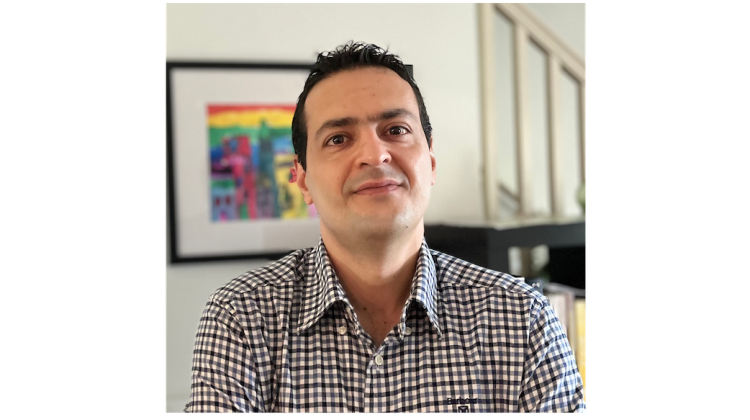Rethinking Faith and Urban Space Beyond Secularism

When planning scholars and practitioners deliberate the ideals of cultural diversity, spatial equity, and social justice in contemporary cities, they often dismiss religion as a private belief, irrelevant to their secular professional practice in the public domain. Today’s cities contain a diverse array of moral values and cultural practices, including those that are rooted in faith, through which urban communities make meaning of their lives and engage with urban space. In many U.S. cities, and around the world, religious-secular differences among urban residents lead to socio-spatial conflicts over issues of land use, public space, and the location of sacred sites. At the same time, religious and spiritual commitments also inspire progressive activism that tackles spatial, racial, and environmental injustice in urban settings. These dual social trends have posed a pressing question for current planning practice: How can urban planners engage with faith communities to build more inclusive cities in ways that move well beyond presuming the exclusionary stances of religiosity and the dismissive glances of rigid secularity?
In his dissertation, alum Babak Manouchehrifar (PhD ‘22, MCP ‘15), tackles this question by examining how U.S. planners have addressed spatial conflicts involving religion since the late-19th century in the United States and internationally: in the Philippines, Albania, and Iraq. His dissertation challenges the conventional assumption that modern urban planning is founded solely on secular principles, and so it must remain “indifferent” to all religions and their various spatial expressions in the built and natural environments. Manouchehrifar’s analysis demonstrates that this assumption, which views secularism as the singular ethos in urban planning, when juxtaposed with the dominance of Anglo-Protestant norms embodied by modernization theories in international development, has often hindered planners’ collaboration with local communities and in some cases, it has even contributed to conflicts.
“This study emerged out of my interest in understanding the challenges and possibilities of engaging with religiously diverse communities in designing more inclusive and sustainable cities. Through my professional experience as a planner and civil engineer in Iran as well as my academic studies in the U.S., I noticed a particular disjunction between the theory and practice of urban planning and international development: urban planners encounter various aspects of religion and secularity in their professional practice considerably more often than they do in their academic training and theoretical explorations,” says Manouchehrifar. “This observation motivated me to probe how religion and secularism influence planning and implementation processes in both Western and non-Western cities.”
Manouchehrifar’s interdisciplinary dissertation committee consisted of Bish Sanyal (MIT, Chair), John Forester (Cornell University), Courtney Bender (Columbia University), and Balakrishnan Rajagopal (MIT). Sanyal described the dissertation as “a hugely important contribution to closing a critical gap in contemporary planning theory and practice that has been overlooked for too long. Not only does this dissertation advance the field of international planning; it also holds tremendous relevance and timeliness for urban planning amidst globalization, international migration, and cultural diversity in our financially interconnected, yet politically fractured cities.”
Manouchehrifar’s dissertation is the winner of the 2023 Association of Collegiate Schools of Planning’s (ACSP) Gill-Chin Lim Best Dissertation on International Planning. The award honors the late Gill-Chin Lim, and the winner is selected on the strength of: innovative scholarship advancing the understanding of the diverse processes of international planning in the global context; pursuit of global cooperation, global social responsibility, global ethics, and respect for global diversity; methodological rigor; and creative and innovative contributions to international planning literature. Previous MIT award winners include: Yuan Xiao (2015) and Georgeta Vidican (2008).
Manouchehrifar is currently a Princeton-Mellon postdoctoral Fellow in Architecture, Urbanism, and the Humanities, and a Stewart Fellow with Princeton University’s Humanities Council. At Princeton, he teaches seminars on “Religion and the City'' and “Religion and Public Policy: At Home and Abroad.” He is currently working on a book project, titled Urban Planning and Religious Pluralism: Challenges and Possibilities, which expands upon his dissertation research in areas of race, environmental planning, and urban analytics. “I am inspired by the mission of planning schools to train diversity-advocate students committed to challenging established paradigms and creating equitable and sustainable cities,” reflects Manouchehrifar on his future as an academic focused on teaching and researching his passion to address spatial inequity and social injustice from different perspectives at both local and global levels. “I believe that planning is not only a profession but also a vocation that requires empathy, open-mindedness, and innovative thinking. I hope to contribute to this field with my scholarship, pedagogy, and service.”


